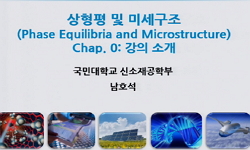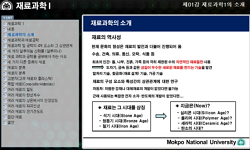Fatigue crack propagation(FCP) behavior of Ti-6Al-4V(Ti64) specimens fabricated by directed energy deposition(DED) and laser-powder bed fusion(L-PBF) processes with different annealing conditions and crack direction(CD) were studied. DED and L-PBF spe...
http://chineseinput.net/에서 pinyin(병음)방식으로 중국어를 변환할 수 있습니다.
변환된 중국어를 복사하여 사용하시면 됩니다.
- 中文 을 입력하시려면 zhongwen을 입력하시고 space를누르시면됩니다.
- 北京 을 입력하시려면 beijing을 입력하시고 space를 누르시면 됩니다.
https://www.riss.kr/link?id=T16836437
- 저자
-
발행사항
진주 : 경상국립대학교 항공우주특성화대학원, 2023
-
학위논문사항
학위논문(석사) -- 경상국립대학교 항공우주특성화대학원 , 항공우주공학과 항공우주공학과 , 2023. 8
-
발행연도
2023
-
작성언어
한국어
- 주제어
-
발행국(도시)
경상남도
-
기타서명
Fatigue Crack Propagation Behaviors of Ti-6Al-4V Product Fabricated by Directed Energy Deposition and Laser-Powder Bed Fusion
-
형태사항
vi, 32 p. : 삽화 ; 30 cm
-
일반주기명
경상국립대학교 논문은 저작권에 의해 보호받습니다.
지도교수: 김상식 -
UCI식별코드
I804:48003-000000033419
- 소장기관
-
0
상세조회 -
0
다운로드
부가정보
다국어 초록 (Multilingual Abstract)
Fatigue crack propagation(FCP) behavior of Ti-6Al-4V(Ti64) specimens fabricated by directed energy deposition(DED) and laser-powder bed fusion(L-PBF) processes with different annealing conditions and crack direction(CD) were studied. DED and L-PBF specimens resulted in reduced reversibility of growth cracks due to microstructure refinement, and as a result, FCP resistance was inferior to that of conventionally manufactured(CM) Ti64 specimens. It was found that the effect on the CD had no effect on the FCP behavior of the DED and L-PBF specimens. In the microscopic and fracture analysis of the specimens, no anisotropy of FCP was found for both DED and L-PBF Ti64 specimens. The main reason is that the phase boundary of randomly oriented acicular a platelets interfere microcrack growth.
목차 (Table of Contents)
- Table contents iii
- Figure contents iv
- Abstract vi
- I. 서론 1
- II. 이론적 배경 4
- Table contents iii
- Figure contents iv
- Abstract vi
- I. 서론 1
- II. 이론적 배경 4
- 2.1 Ti64 합금 4
- 2.1.1 Ti64 합금의 미세조직과 기계적 특성 4
- 2.2 적층제조 공정 5
- 2.2.1 FCP 거동에 영향을 미칠 수 있는 적층제조공정 변수 6
- III. 실험 방법 8
- 3.1 시편 8
- 3.1.1 적층제조 조건 8
- 3.1.2 비교용 재료 8
- 3.2 피로균열전파 특성 평가시스템 9
- 3.3 시험조건 9
- 3.3.1 미세조직적 특성 평가 9
- 3.3.2 피로균열전파 시험 9
- IV. 실험결과 및 고찰 11
- 4.1 미세조직 11
- 4.2 인장 특성 및 파괴 인성 11
- 4.3 피로균열전파 특성 12
- V. 결론 25
- 참고 문헌(References) 26











